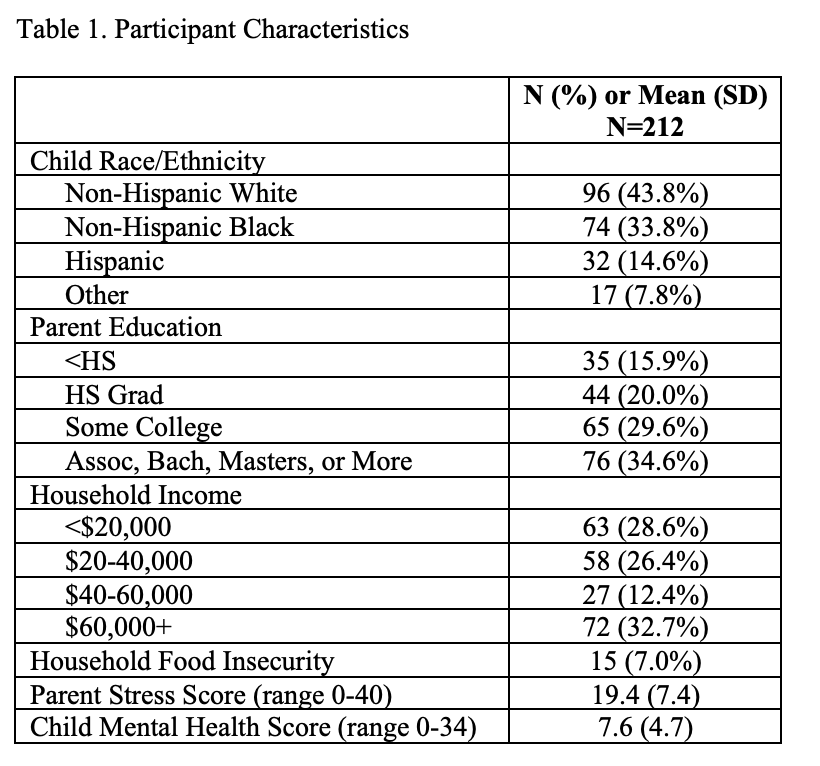Public Health & Prevention
Public Health & Prevention 2
101 - Social Support in Parents of Young Children and its Association with Parent, Child, and Household Factors
Publication Number: 101.15

Callie L. Brown, MD, MPH (she/her/hers)
Assistant Professor
Wake Forest School of Medicine of Wake Forest Baptist Medical Center
Winston-Salem, North Carolina, United States
Presenting Author(s)
Background:
Social support is associated with positive health outcomes for parents and their young children. However, there is limited research on parent, child, and household factors that are associated with perceived social support for parents of young children.
Objective: The purpose of this study was to examine correlates of social support for parents of diverse young children, including family demographics, social risk factors, and parent and child mental health measures.
Design/Methods: We performed a secondary data analysis of cross-sectional data from a study of 212 parents of healthy children aged 4-6. Parents completed a questionnaire in which they reported demographics, household food insecurity (2-item Hunger Vital Sign), parent stress (Perceived Stress Scale), and child mental health (Pediatric Symptom Checklist-17). Parental social support was assessed using the 8-item modified Medical Outcomes Study Social Support Survey (MOS-SS). The MOS-SS consists of 2 subscales assessing both instrumental support (e.g. help with chores if you are sick) and emotional support (e.g. someone who understands your problems). Subscales are scored 0-100 with higher scores indicating more support. We used separate multivariable linear regression models to examine associations between both instrumental and emotional social support with child race/ethnicity, household income, household food insecurity, parental stress, and child mental health.
Results:
Participants had diverse race/ethnicity and socioeconomic status (Table 1). Parents reported mean social support scores of 75.8 (SD 29.8) for instrumental support and 78.7 (26.3) for emotional support. Non-Hispanic Black, Hispanic, and other race/ethnicity (compared to non-Hispanic white), household food insecurity, and higher parental stress were associated lower instrumental and emotional support (Table 2).
Conclusion(s):
In a diverse cohort of parents of young children, higher social support was associated with minority race/ethnicity, household food insecurity, and higher parent stress. Identifying and understanding factors associated with parental social support is important as lower social support is yet another vulnerability that many already marginalized families face. While this study is limited by cross sectional data, we recognize that the relationship between social support and parent/child mental health is complex and likely bidirectional. Future longitudinal studies are important to tease out the directionality of these relationships. 
.png)
